The dark truth of Amazon founder and billionaire Jeff Bezos’ space flight ambitions
These seemingly ordinary drink bottles mask the sinister reality of Amazon founder Jeff Bezos’ huge wealth, which made his trip to space today possible.
When Patty Hernandez began experiencing discomfort in the first trimester of her pregnancy, her doctor ordered her to perform lighter duties at work or risk losing her baby.
The 23-year-old parcel packer at an Amazon fulfilment centre in California in the United States asked her manager if she could move to a less physically gruelling role in the warehouse.
Her job was to haul huge yellow bins filled with packages, weighing up to 22 kilograms each, off conveyor belts during her 10-hour shifts.
A letter from her doctor stated she should avoid lifting, carrying, pushing or pulling more than nine kilos, and not walk or stand for more than half of her shift.
Ms Hernandez’s request for lighter duties was denied. Her manager, who knew she was pregnant, began chastising her for taking too many toilet breaks, she claims.
During a shift in October last year, she went to the bathroom and discovered blood in her underwear. Ms Hernandez had miscarried.
RELATED: Amazon’s Jeff Bezos denies employees are ‘desperate souls’ and vows to do better for workers
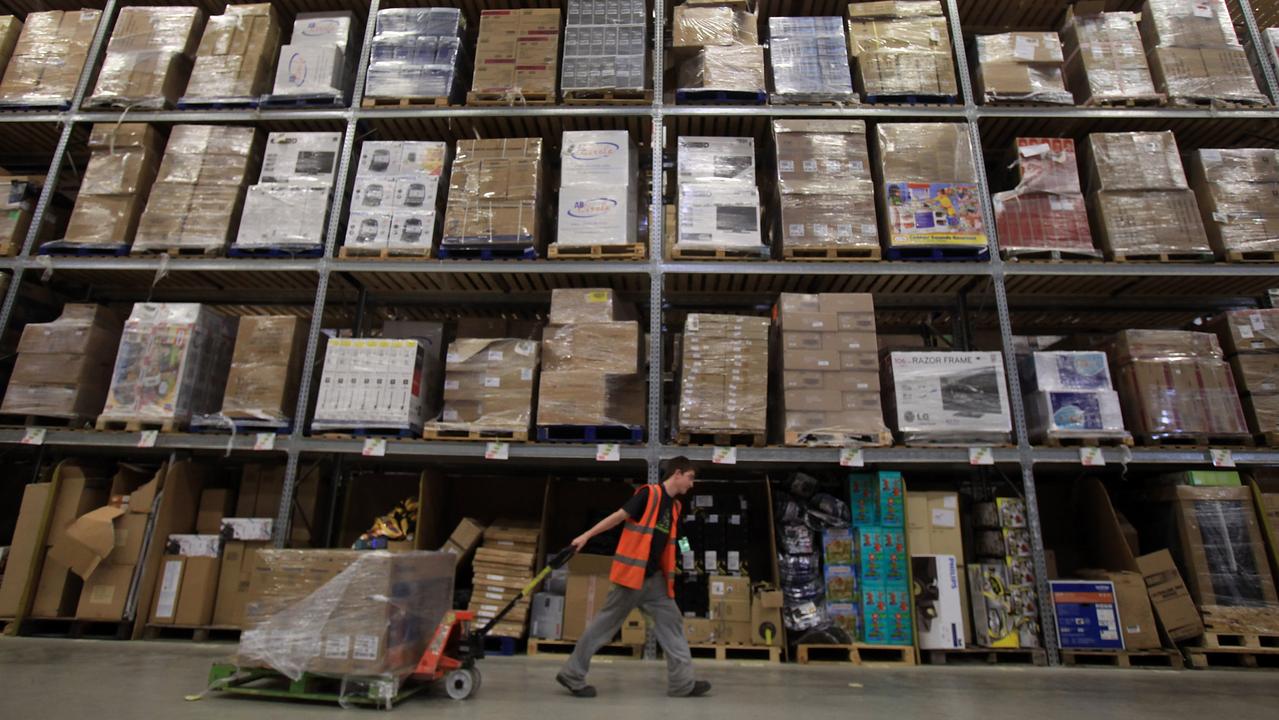
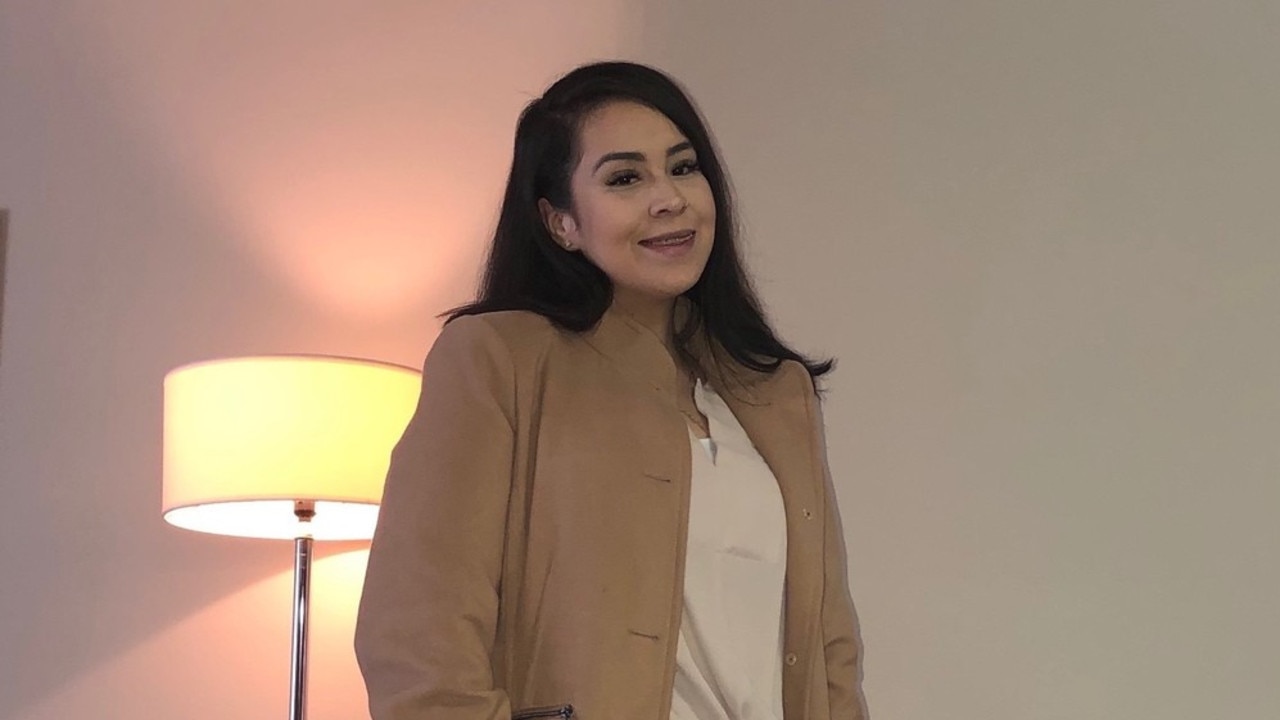
To add insult to injury, she was denied medical leave and after exhausting her small amount of personal leave, was forced to resign.
In the weeks after Ms Hernandez lost her baby, data released by the US Government’s Accountability Office found more than 4000 workers in Amazon’s fulfilment centres across America rely on food stamps to survive.
The federal program gives grocery vouchers to low- and no-income Americans and wasn’t designed for people who work substantive jobs.
Seventy per cent of those Amazon workers on food stamps are full-time employees.
Last month, a damning leak from the Internal Revenue Service – America’s tax collection agency – revealed Amazon founder Jeff Bezos, the richest man in the world with an estimated worth of US$205 billion (AU$279 billion), paid no income tax in 2007 and 2011.
In one year, he even claimed a $4000 parental tax credit intended for households earning less than $100,000 a year.
And overnight, Bezos roared to the edge of space on board his penis-shaped rocket, on his multibillion-dollar company Blue Origin’s maiden passenger flight.
“I want to thank every Amazon employee and every Amazon customer because you guys paid for all of this,” he said after landing.
Those could be the truest words ever spoken, and without a hint of irony.
RELATED: ‘We are human beings, not slaves and animals’ – brutal conditions inside Amazon warehouses
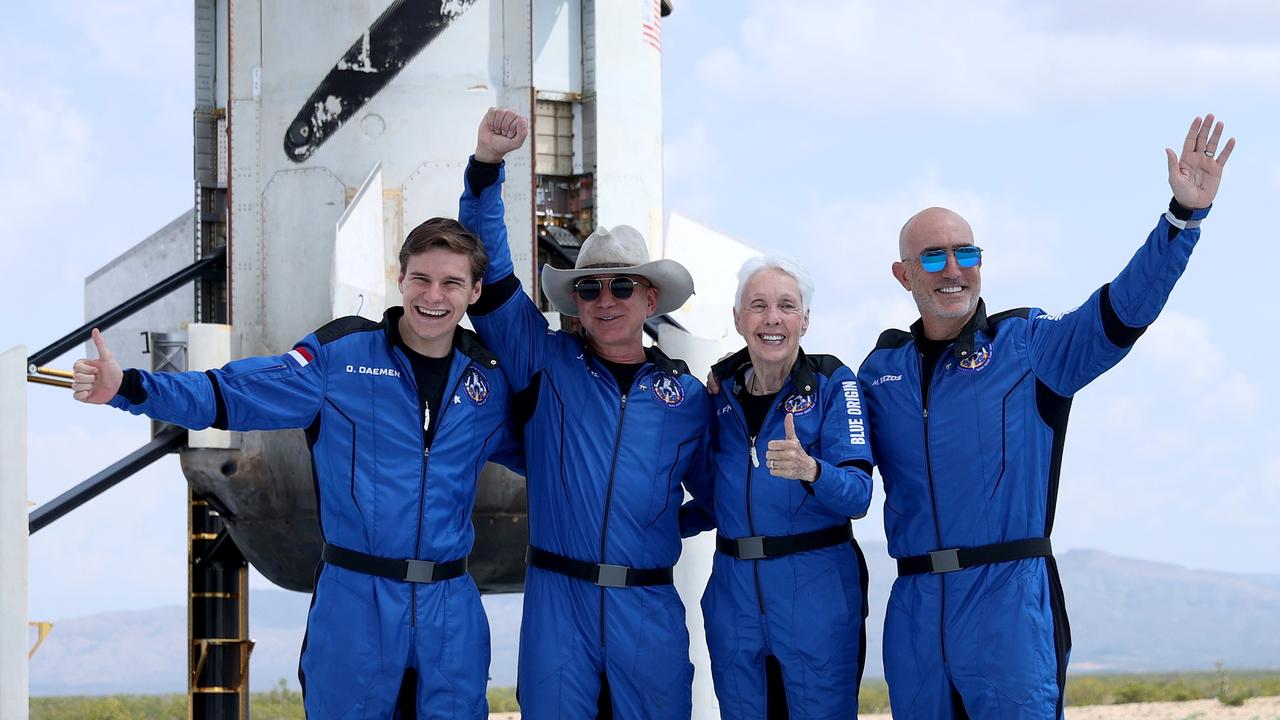
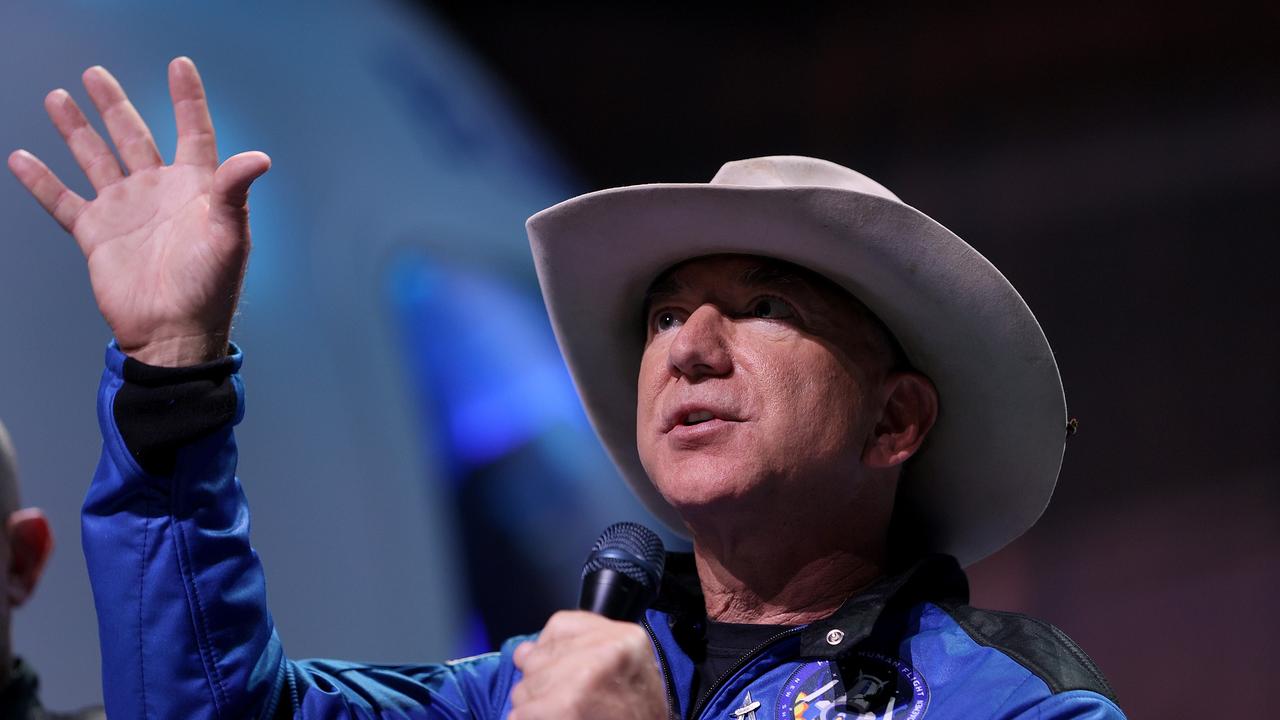
‘Inhumane’ workplaces earning Bezos billions
Ms Hernandez’s story is far from an isolated incident.
Reports of other pregnant women being penalised and even dismissed for requesting certain workplace accommodations, including more permitted toilet breaks, have surfaced in recent years.
More broadly, Amazon workers in the US have spoken out about the shocking conditions they face in the company’s vast network of fulfilment centres.
Mega warehouses packed full of thousands of products are staffed by an army of employees that race around picking, boxing and shipping orders to customers of the online shopping giant.
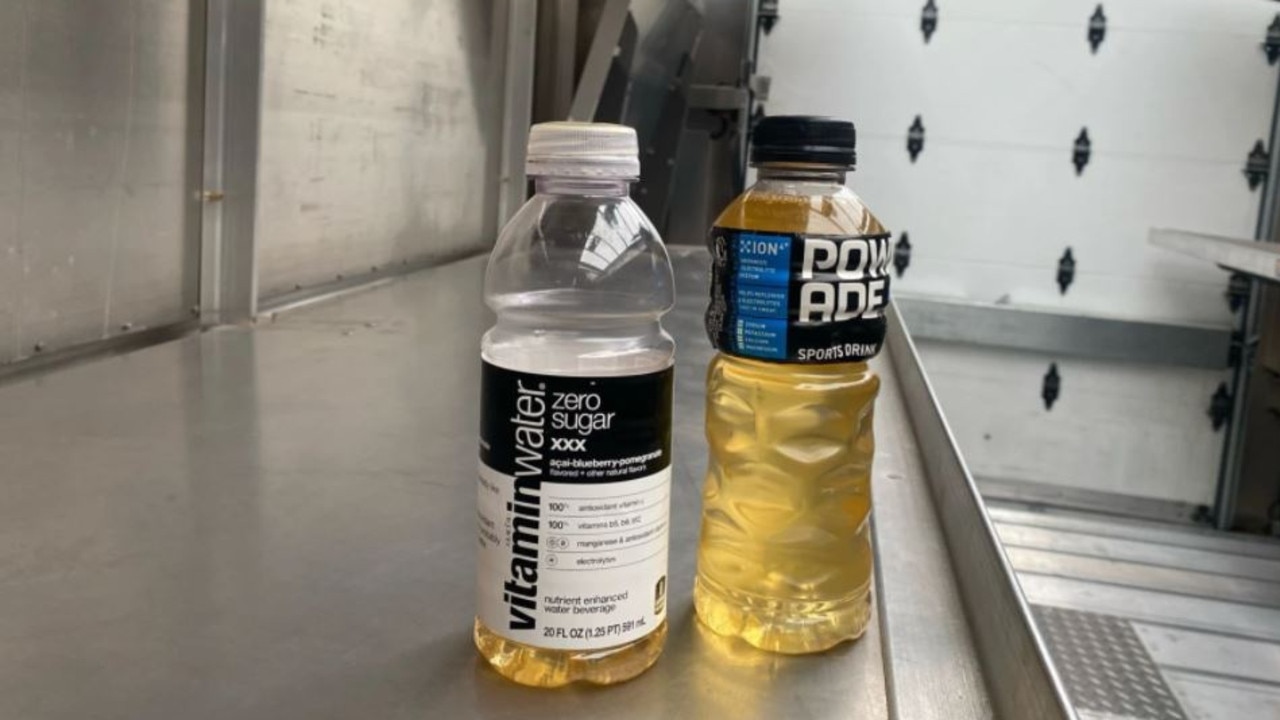
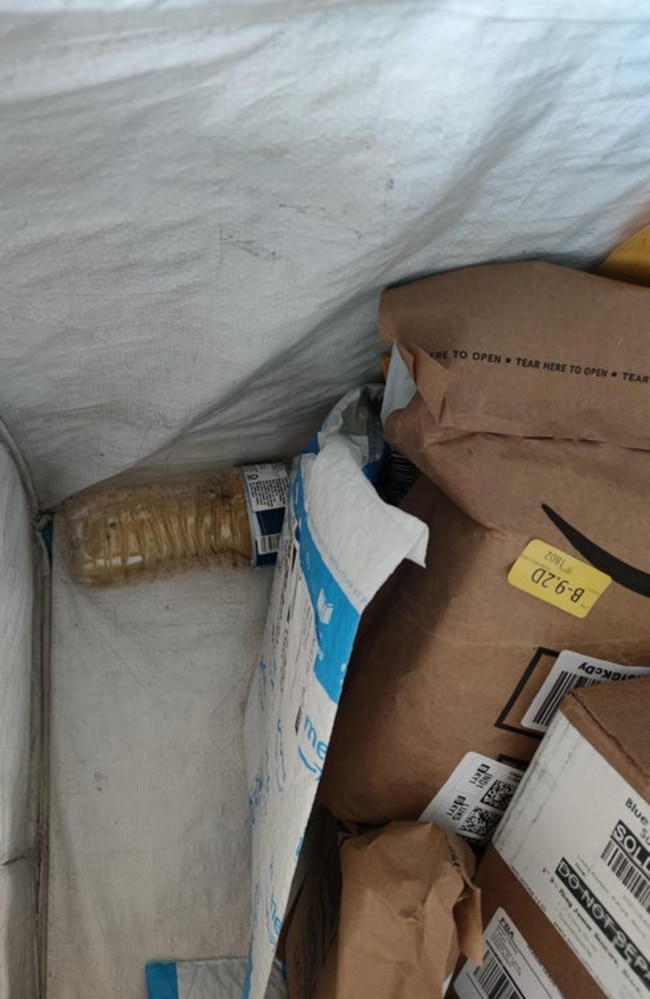
They feel immense pressure to perform thanks to ambitious targets set by management, which have been criticised by workplace advocates as near-torture.
One such measure is called ‘time off task’ – a calculation of the minutes a fulfilment centre worker isn’t performing their duties, tracked by the portable scanner assigned to each order packer.
Staff are allowed just 10 minutes of time off task each shift.
There are now-infamous examples of how this policy can play out, with warehouse workers urinating in bottles, soiling themselves or fainting from exhaustion.
As Ms Hernandez pointed out, the bathroom in her enormous fulfilment centre was a six-minute walk away, meaning it was physically impossible to use a toilet without falling foul of the time off task limit.
Class warfare is Jeff Bezos, Elon Musk and Richard Branson becoming $250 billion richer during the pandemic, paying a lower tax rate than a nurse and racing to outer space while the planet burns and millions go without healthcare, housing and food. #TaxTheRich
— Warren Gunnels (@GunnelsWarren) July 18, 2021
Another lofty target imposed on fulfilment centre workers is inspect and scan 1800 packages each hour before they leave a facility on a truck. That’s the equivalent of 30 a minute.
A Washington Post investigation fond warehouse workers suffer on-the-job injuries at a higher rate than most other companies in the US.
Democrat Congresswoman Alexandria Ocasio-Cortez is one of Bezos and Amazon’s biggest critics, saying the company should pay its workers more and offer better conditions.
Today, in response to the post-space flight comments from Bezos, Ms Ocasio-Cortez was scathing.
“Yes, Amazon workers did pay for this – with lower wages, union busting, a frenzied and inhumane workplace, and delivery drivers not having health insurance during a pandemic,” she said in a tweet
“And Amazon customers are paying for it with Amazon abusing their market power to hurt small business.”
Late last year, amid reports of warehouse workers struggling to pay their bills despite working long hours, Ms Ocasio-Cortez described a job at Amazon as being “a scam”.
Staff at fulfilment centres continued to work during the Covid-19 pandemic as the virus ravaged America, deemed essential workers. Many had no or inadequate health insurance.
Coronavirus restrictions also meant many public bathrooms were closed and with restaurants or cafes sheltered, some delivery drivers urinating in bottles inside their trucks as a result.
RELATED: Amazon reportedly aware of drivers peeing in water bottles and defecating in bags
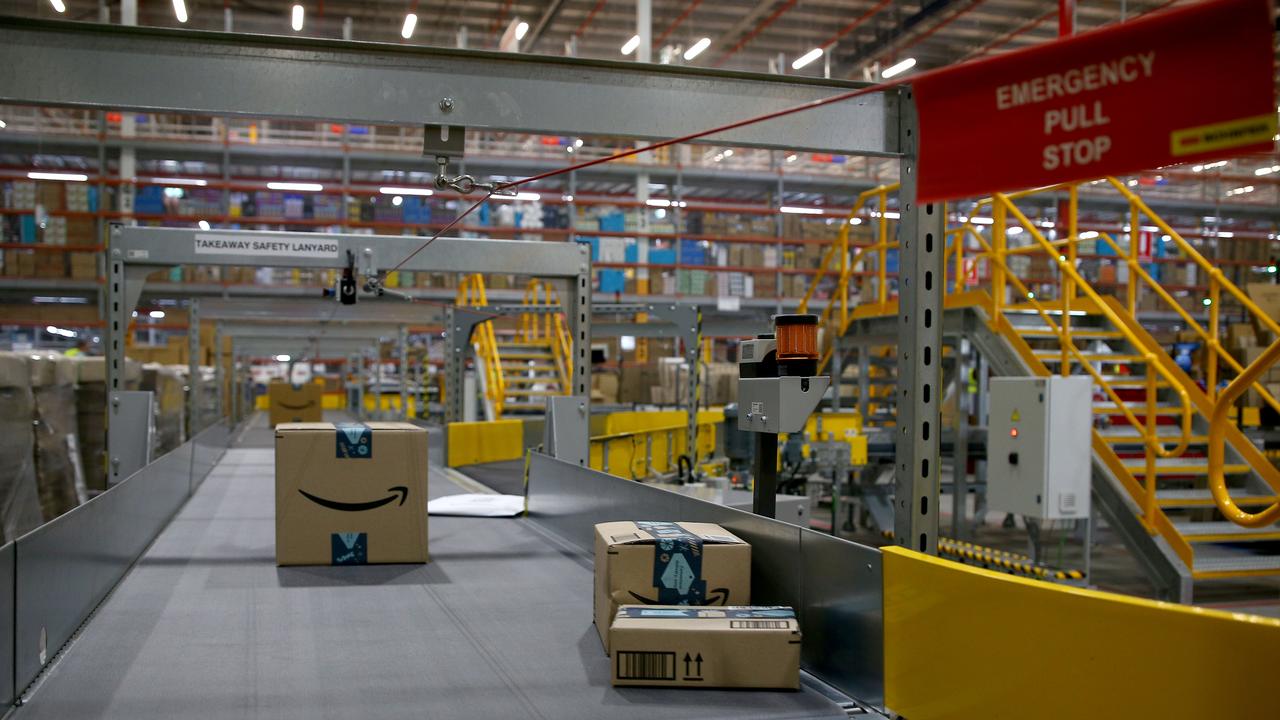
Growing scrutiny not well-received
The company has been somewhat combative of its critic in recent times, attacking any negative publicity about its working conditions.
When a US politician attacked the treatment of warehouse workers, it fired back with a snarky tweet that read: “You don’t really believe the peeing in bottles thing, do you? If that were true, nobody would work for us.”
Former staff, union representatives and investigative reporters quickly debunked the denial, sharing widespread accounts over several years and even photographs of bottles full of urine.
Then came an embarrassing backdown from Amazon, which conceded that some workers are indeed forced to pee in bottles.
RELATED: ‘We are totally happy,’ say paid Amazon workers on social media
I didn’t write the loopholes you exploit, @amazon – your armies of lawyers and lobbyists did. But you bet I’ll fight to make you pay your fair share. And fight your union-busting. And fight to break up Big Tech so you’re not powerful enough to heckle senators with snotty tweets. https://t.co/3vCAI93MST
— Elizabeth Warren (@SenWarren) March 26, 2021
Efforts to unionise the warehouse workforce have been met with fierce campaigns from management. Critics describe it as akin to archaic union-busting.
Better regulations and tighter laws in Australia mean Amazon’s local fulfilment staff enjoy better working conditions than their American counterparts.
But still, an ABC investigation in 2019 reported a “culture of fear” where performance is timed “to the second” and high-pressure targets make many feel like they can’t take a toilet break.
“We strive to be a great employer in Australia and we believe we are making good progress but still have lots more to do,” the company told the ABC at the time.
Amazon in the US has also repeatedly defended its record in the past, pointing out that it’s the country’s second-biggest employer and a great place to work, but said it was always looking at ways to do better.
It’s been reported that the annual turnover rate for warehouse workers in the US is 150 per cent.
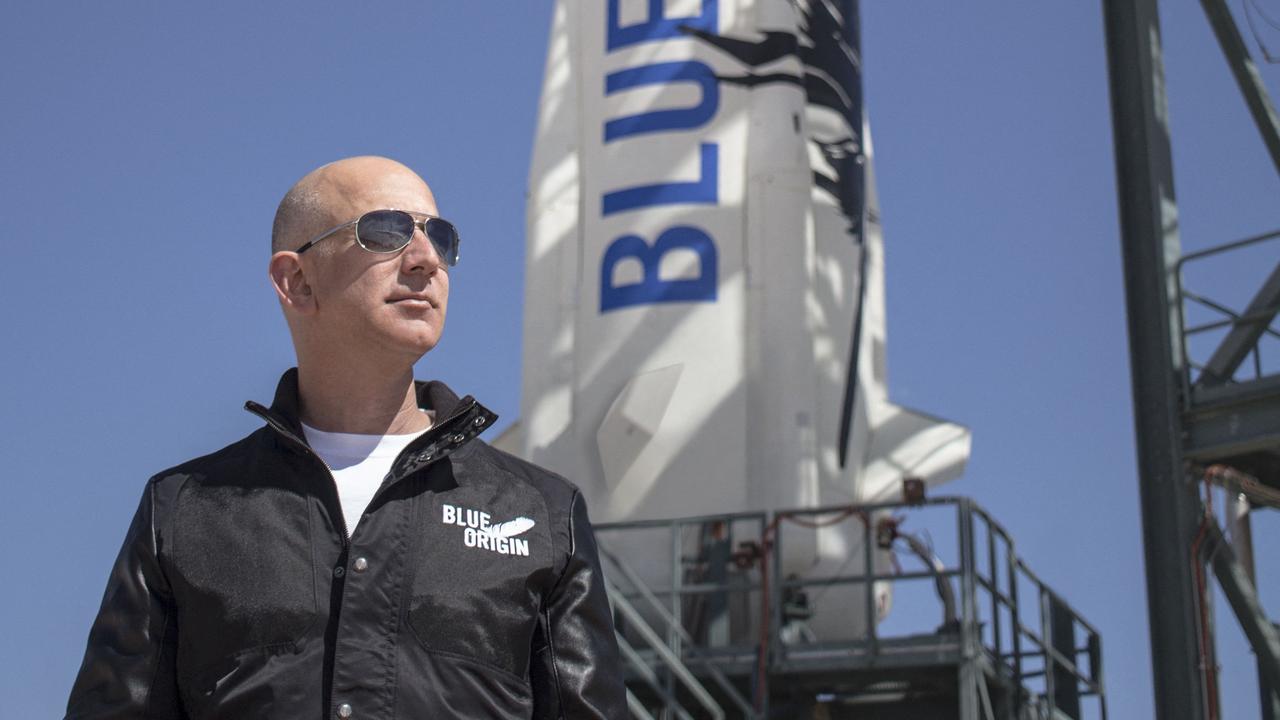
Bezos holds his wealth close
Since the Covid-19 pandemic, Bezos has seen his wealth explode by a whopping US$70 billion (AU$95 billion) thanks to Amazon’s exponential growth.
He just handed over the role of chief executive officer of the company that he founded in his Seattle, Washington garage in the mid-1990s.
Bezos will now focus on Blue Origin, his new space venture, which has sold US$100 million (AU$136 million) worth of flights so far, he revealed today.
“The demand is very, very high,” he said of the tickets.
Jeff Bezos: "I wanna thank every Amazon employee and every Amazon customer because you guys paid for all this." pic.twitter.com/HTLORzbfnY
— The Recount (@therecount) July 20, 2021
An auction for a seat alongside Bezos on its first flight went for US$28 million (AU$38 million).
In stark contrast to the huge amount of money spent on his space vanity project – an estimated US$1 billion (AU$1.3 billion) a year – he has donated just a tiny proportion of his historic wealth to charity.
It’s been reported that Bezos has given about one per cent of his fortune to charitable causes.
That pales in comparison to the giving of other billionaires, with Donald Trump having donated three per cent of his wealth.
This was clearly on people’s minds during today’s space flight, with a trending topic on Twitter devoted to his ex-wife Mackenzie Scott giving away US$5.8 billion (AU$7.9 billion) in 2020 alone.




